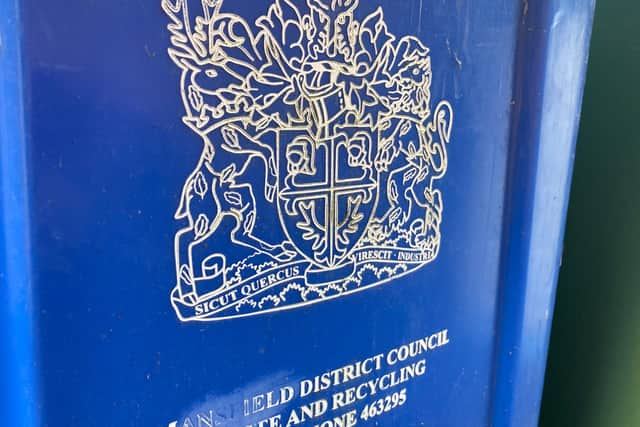Mansfield council misses recycling targets as residents continue to put banned items in blue bins
and live on Freeview channel 276
During July to September of last year, an average of 18.5 per cent of recycling loads collected by the authority were rejected by the service provider Veolia – with glass accounting for the majority of the contamination.
The report states that the fourth quarter showed a similar picture, with glass accounting for around 11 per cent of all contamination.


Advertisement
Hide AdAdvertisement
Hide AdOther items regularly found in recycling bins include nappies, textiles, household waste hidden at the bottom of bins and milk cartons.
The national target for contaminated recycling is just five per cent and no other Nottinghamshire local authority is meeting the requirement, a meeting of the council’s overview and scrutiny committee was told.
The report states: “There has been a marked increase in the number of loads being rejected at Veolia’s Recycling Facility. Instructions to operatives have been issued to ensure that they are checking the blue bins but there does not seem to be any reason to explain the rise.
"The number of bins that are rejected by the crews is similar and there has been no change in what is acceptable in the blue bin.”
Advertisement
Hide AdAdvertisement
Hide AdIt is hoped that the contamination figures will reduce now that separate glass collections are being rolled-out around the district, with bins already delivered to around 43,000 households in the district at a rate of 1,000 to 2,000 per day.
All those enrolled in the scheme should have had their first collection by Friday, May 28, the report states.
